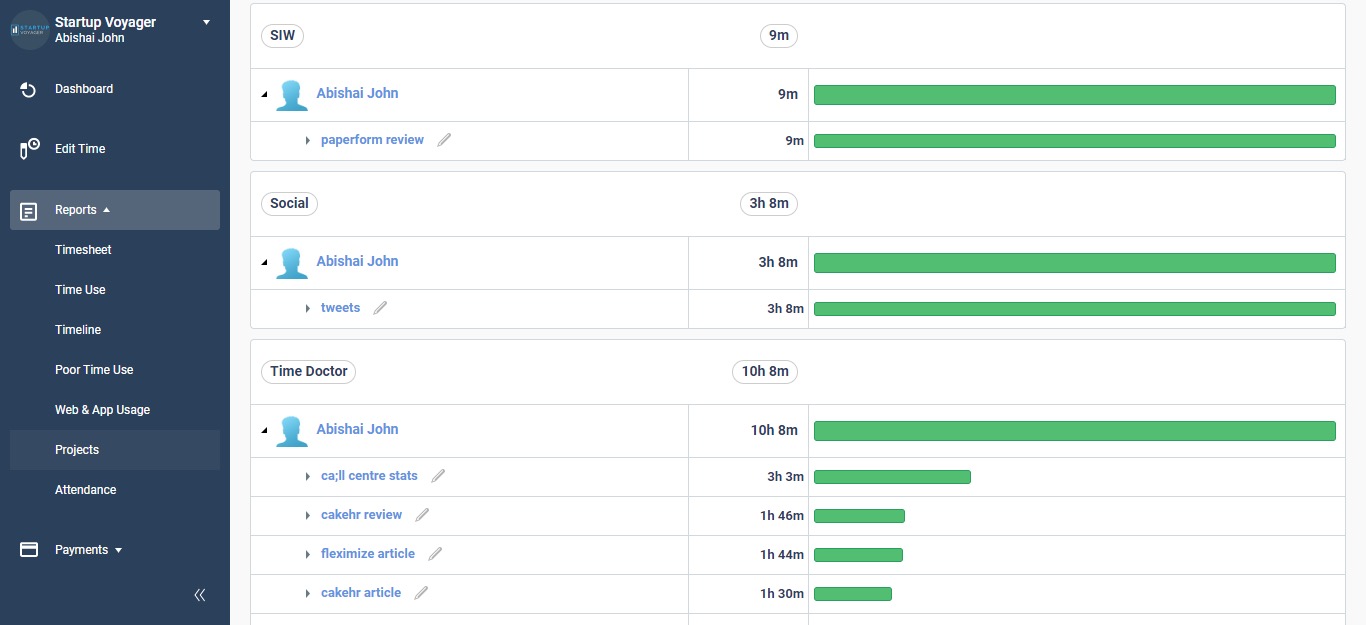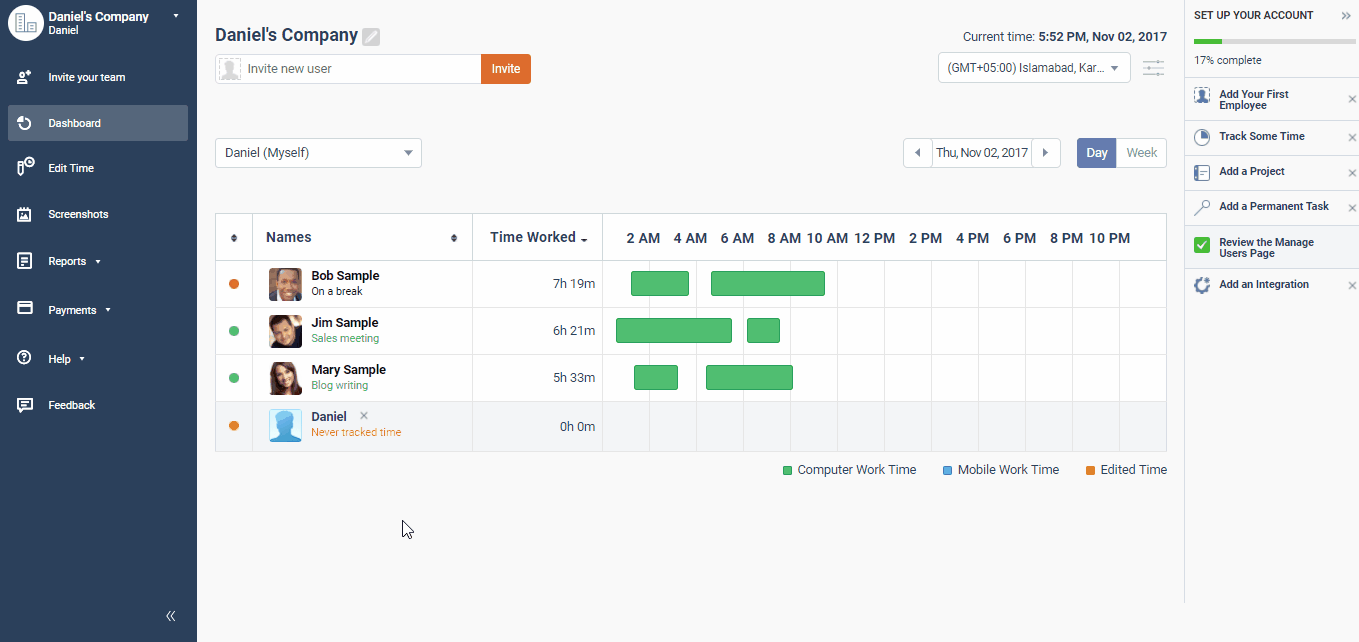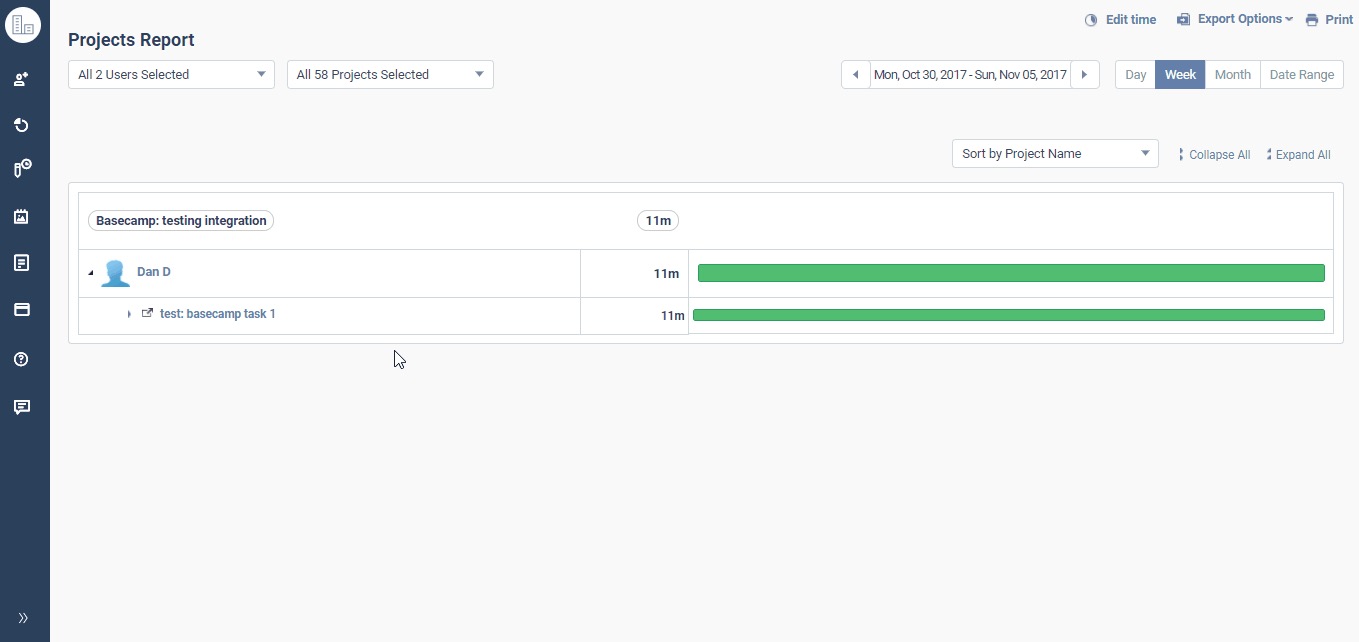Want to start your own social media marketing agency?
While starting any small business takes tons of time and effort, starting a social media marketing agency can be especially tricky. However, with the right tips and tools, you can get up and running in no time.
In this article, we’ll go over all you need to know to set up your own social media marketing agency.
Here is what this article contains:
(click on the links to jump to a specific section)
- Identifying Your Niches
- Establishing Yourself On Social Media
- Creating A Business Plan and Structure
- Determining Your Pricing Models
- Acquiring Clients
- Hiring People
- Monitoring Your Progress
Let’s get started.
1. Identifying your niches
Before you open your social media marketing agency, you’ll have to identify your niches.
What’s a niche?
Your niche will be the focus of your agency. It’ll help you zero-in on what platforms and industries you’re comfortable working with.
Here are the three types of niches you should focus on:
A. Platform niches
It’s a good idea to focus on a few specific social media platforms when you’re starting out. For example, your agency can focus solely on Instagram marketing instead of handling Snapchat and Facebook too.
Why?
Understanding the nuances of just one platform is far simpler than trying to handle ten different platforms.
Remember, each platform has:
- Different audiences.
- Different kinds of content.
- Different posting rules.
- Different reaches.
You can’t use the same marketing strategies for LinkedIn and Snapchat, right?
By focusing on a single platform, you can thoroughly understand its nuances and give your clients the best possible experience.
Worried about limiting yourself?
Don’t worry. You won’t have to limit yourself to one platform forever.
After you have some experience under your belt, you can always branch out into other platforms!
B. Industry niches
You’ll also have to zero-in on which industries you want to work with.
Remember, different industries need different kinds of campaigns – even if they’re on the same platform.
For example, an e-commerce site can’t use the same Facebook Ads as an insurance agency, right?
When you’re starting out, it’s a good idea to focus on niches that aren’t too technical. Avoid taking on fields that you have absolutely no prior knowledge of.
Why?
It’s going to take you tons of time to familiarize yourself with the ins and outs of the industry. Instead, focus on an industry that suits your prior knowledge and skillset. This will minimize onboarding time and help you get up and running quickly.
C. Scopes
You’ll also have to zero-in on the scope of your services.
This will determine what you offer to your clients. It’s important to define this clearly because it guards against clients hiring you for tasks you’re not prepared to deal with.
For example, you can set up a digital services agency that solely deals with uploading and scheduling social media posts. Alternatively, your agency can deal with everything in social – strategizing social media campaigns, creating the visuals, writing the copy, working with influencers and so on.
Ensure that your scope isn’t too broad to begin with. This might overwhelm you and lead you to work on projects you can’t handle. Focus on a few specific tasks and branch out only after you’ve already mastered them.
2. Establish yourself on social media
Clients usually hire you based on your prior work experience.
But how do you show them experience when you don’t have clients to begin with?
By establishing your online presence.
Think about it:
“If you’re a prominent figure on social media, chances are, you know what you’re doing, right?”
However, you can’t just establish your social media presence anywhere.
Your social media accounts have to be focused.
Once you’ve identified a platform and industry you’re comfortable with, establish yourself there.
For example, if your platform niche was Instagram and your industry niche was real estate, focus on becoming a prominent real estate figure on Instagram.
This will establish yourself as one of the key influencers in your field. Now, whenever a potential client notices your social media posts, they’ll see that:
- You’re good at online marketing and have the talent to handle their social media campaigns.
- You’re knowledgeable in their field and will be able to handle their target audience.

3. Create a business plan and structure
You’ll now have to create a business plan and decide on your business structure. This will help you develop the foundation of your business and create a roadmap for your future.
Here’s how you go about it:
A. Decide on your structure
The first question you should ask yourself is – what kind of social media agency is this going to be?
Is it:
- A sole proprietorship?
- A partnership?
- An LLC?
A sole proprietorship is usually the go-to option for anyone starting out solo. If you have someone else involved in this business, then maybe go for partnership. Alternatively, if you’re looking to scale things up quickly, an LLC might work.
Remember, each of these business structures come with their own set of pros and cons. Carefully go over what you’re looking to achieve and what resources you currently have before deciding on a business structure.
B. Create a name for your business
Before you reach out to clients, you’ll have to decide on what you’ll be known as.
Choose a name for your business that’s unique and relevant to what you offer. However, you also need to ensure that it’s easy to pronounce.
Why?
If clients are confused about what to call you, they’re probably not going to hire you!
It’s also important to set up a website for your business. Ideally, your business and domain name should go hand in hand – so keep that in mind when developing your business name.
You might have some difficulty finding available domains, so shortlist a bunch of alternative business names when searching for this.
Tip: Don’t opt for domain extensions that aren’t .com (such as .net or .org). A person searching for your site might mistakenly type in the “.com domain” instead of your “.net domain.”
C. Go over the legal aspects of your business
Setting up a business involves tons of registrations, taxes and other legal complications. It’s important to go over your country, state and local laws to ensure that your business complies with them.
You should also create a separate bank account for your business. This will:
- Keep your finances ordered and make it easier on you once tax season comes.
- Increase your purchasing power with higher credit limits.
- Make your business look more legitimate when clients pay you.
In some cases, it also makes sense to register your digital marketing business.
There are a few distinct benefits to doing this:
- Legal benefits – registered businesses will find it easier to abide by corporate laws and comply with business regulations.
- Tax benefits – registered businesses benefit from tons of subsidies and government tax breaks.
- Personal liability protection – registering your business separates your personal and business liabilities – safeguarding your personal assets in case things go wrong.
However, registering your business isn’t always needed. Go over your business plans with an accountant to get a clearer picture of what suits your needs best.
D. Get the right tools
You can’t run a social media business without adding the right tools to your business plan, right?
Every social media agency must contain these two types of tools:
- A scheduling tool
- An image/infographic/banner maker
Here’s a closer look at each one:
1. Scheduling tools
Scheduling tools allow you to schedule your social media posts in advance. They’re essential to running perfectly timed social media campaigns. As you can set up a posting schedule, you won’t have to manually upload a post every few hours or so.
Some good scheduling tools to explore are Later, Plann, Communit360, SocialBee, Recurpost and Buffer.
2. Infographic/banner makers
You can’t create attractive social media posts without great visuals right?
These tools will help you create beautifully detailed graphics and banners that’ll catch your audience’s attention. Most of these tools are incredibly easy to use and don’t require any prior knowledge of graphic design.
Some good tools to use are Snappa, Piktochart and Venngage.
Remember, these aren’t the only tools you’ll need. As your agency grows, you’ll need to invest in more advanced platform-specific tools to make the most of your campaigns. However, for anyone just starting out, these tools are a must.
4. Determine your pricing
Running your own social media marketing company can be costly.
You’ll have to cover:
- Setup costs
- Business overheads
- Taxes
- Salaries
But at the same time, you can’t price yourself too high, right?
If you do, nobody is going to want your social media services!
So what do you do?
One tactic is offering clients free pilot projects.
Since it’s free, they have nothing to lose when giving you some work. You can now demonstrate your expertise and show them how talented you are. If your pilot project goes well, they should have no problem paying you – even if you’re new to the field.
Why?
You’ve proven to them that you’re capable of handling the kind of work they do.

Another thing to look at is how you price your clients.
Here are two common pricing models:
A) Packages
Packages are great when you’re starting out because you clearly state what you can and can’t do for the client. As you’re outlining this at the start, you won’t have to deal with clients asking you to do things you’re not prepared to.
However, packages are an expensive pricing model and most clients prefer not to make an upfront, large payment to a new company.
B) Hourly pricing
You can also bill your marketing services at an hourly rate. This is great because you’re getting paid for the work you actually do.
For example, if a client gives you an incredibly tough assignment, you can bill them for more as it took you more time. Unlike packages, where the price is already set, hourly models give you a more honest return for your effort.
However, if you’re going to charge clients on an hourly basis, it makes sense to invest in a time-tracking tool like Time Doctor that can accurately track your project time. Without detailed, accurate records of your work time, clients won’t be prepared to accept your quote.
For instance, if you use Time Doctor, it will just take a few minutes to calculate your billables from the Project Report.

5. Getting clients
Getting clients is probably the hardest part of setting up a social media marketing agency.
When you start out, clients aren’t going to come to you. You’re going to have to reach out to them.
Luckily, there are a few tried-and-tested ways to boost your chances of getting some clients:
A) Work in a social media agency for a while
A great way to get clients is by laying the groundwork for it super early. Instead of searching for clients after you set up your business, start work on it before it’s up and running.
Work as an employee or freelancer in a social media firm before you start out on your own. Here are a few benefits of doing this:
1. Boosts your credibility
Even if you’re just an employee or freelancer, working at a social media agency gives you experience. It lets prospective clients know that you’ve been part of this field for a while and understand it well.
2. Lets you know how the industry works
Working for other social media managers gives you an idea of:
- How a business is run.
- How the industry operates.
- What marketing efforts work in this industry.
- What performance standards are expected.
This way, when you start your own agency, you already have a rough idea of what to do and how to get things running.
3. Helps you build a network
Lastly, working for an agency will let you establish your name in the industry. You can use your time as an employee to build valuable business relationships that can be leveraged when you start your own agency.
Not only could you make connections with future clients, you can also connect with current influencers in the market. This will hold you in good stead when you conduct influencer marketing campaigns with your own agency.
B) Look for connections you already have
Reaching out to existing connections is the easiest way to get up and running when you start your business.
Why?
As these people already know you, they’ll be more willing to give your business a shot – even if you have no previous clients.
Tip: Once you’ve worked for them for a while, ask them to write reviews, record testimonials and recommend you other local businesses. This will help build your reputation and credibility.
C) Turn to online platforms to source clients
If you’re a social media or digital marketing agency, you can always look online for clients.
For example, you can leverage Linkedin to identify companies looking for social media marketers and offers you services to them. Alternatively, you can visit freelancer websites like Upwork to find opportunities for your agency when you’re starting out.
However, remember, as these are people who don’t know you, they’ll be hesitant to take you on without any prior experience. Review some B2B lead generation ideas and reach out to your current contacts to gain some experience before opting for this approach.
Another option here is to use services like Agency Vista.
Agency Vista is the largest marketing agency network (45,000+ agencies) and a top destination for businesses looking to hire. Their approach connects brands with agencies in a data-driven way that offers businesses precise matching with the most qualified agencies for their specific requirements and budget.
6. Start hiring people
While it’s possible to manage all your operations by yourself initially, it isn’t sustainable.
Think about it.
How will you grow and onboard new clients if you’re busy:
- Managing campaigns.
- Organizing your finances.
- Creating reports.
- Drafting proposals.
If you want to grow your business and get to the next level, you’ll have to hire people. However, most new business owners don’t have the resources to hire a fully-fledged team from the start.

What you could do instead is start off with a virtual assistant, accountant and marketer.
- Your virtual assistant can handle all your administrative tasks, like drafting proposals and maintaining reports.
- Your accountant can handle your business’ finances and billing process.
- Your marketer can then focus on SEO, content marketing trends and email marketing for lead generation to grow your business.
As all your other activities are taken care of, you can focus solely on your client’s social media management. Once you start making more money, you can hire someone to help you with the assignments and gradually expand until all your operations are handled by employees!
7. Monitor your progress
You’ve now got a niche, some clients and a team.
However, your work isn’t finished.
You’ll now have to carefully track your progress to ensure that things are running smoothly.
Remember, you need to show your clients that hiring you was a good choice. The only way to do this is by running successful social media campaigns. If you keep them happy, they’ll refer you their networks and you can grow your client base in no time!
And what’s the best way to deliver consistently?
By tracking your progress and utilizing a hard-working team.
If you can maintain productivity in your agency, you’ll have no trouble reaching your goals and growing.
Luckily, time tracking tools like Time Doctor were built for this.
What’s Time Doctor?

Time Doctor is a powerful time tracker that’s used by large companies and small business. With Time Doctor you can:
- Automatically track the time spent by an employee on each task.
- Identify unproductive employees and take measures to boost their productivity levels.
- Use the Web and App usage report to track the apps and websites they use during work hours.

- Use the Projects Report for detailed breakdowns on how much time each project took – allowing you to bill clients accordingly.
- Access inactivity monitoring features to ensure that your employees are active during work hours.
- Utilize a dedicated client portal to let your clients monitor their project progress.
- Seamlessly integrate with apps like Slack, GitHub and Google Apps.
It’s the perfect tool to boost productivity at your agency and keep your clients happy!
Click here for a detailed breakdown of Time Doctor’s features.
Conclusion
While starting your own business can be daunting, it isn’t impossible.
With the right preparation and strategies, you’ll have no trouble creating a strong base for your agency to build on.
Using tools like Time Doctor to maintain productivity is another surefire way to breeze through your projects and keep your clients happy. It’s an indispensable tool for any business, so why not sign up for it today and experience it yourself?

Andy is a technology & marketing leader who has delivered award-winning and world-first experiences.


